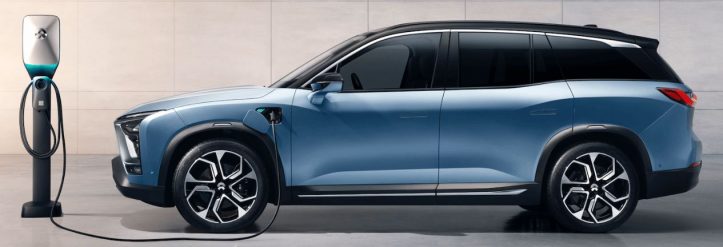25.05.2021
Attitudes towards the purchase of electric vehicles ... mehr
Attitudes towards the purchase of electric vehicles in Germany over time

No long-term trend can be detected when it comes to the intention to purchase a new car or in the level of interest in buying an electric vehicle. In May 2020, 23% of respondents said they were (very) likely to buy an electric vehicle when making their next car purchase. Almost a year later, in March 2021, this figure is still 23%. Even though the German government increased the "environmental bonus" for the purchase of electric vehicles in June 2020, this does not appear to have had any clear influence on the subsequent survey waves. In general, fluctuations in the likelihood of pure e-car purchases are more related to the overarching fluctuations in vehicle purchasing behavior as a whole rather than to externally-derived incentives to purchase electric cars. Looking at the data in more detail, it shows that interest in buying an electric vehicle is consistently higher in men than it is among women.

Question 1 Are you planning to purchase a new car (lease, purchase) in the next 6 months?
Question 2 How likely is it that you will purchase a car with an all-electric drive system in your next car purchase?
Since there were no strong variations between the survey waves throughout the study period, all data are considered accumulated over the last 11 months. Thus, over the total period, 22% of respondents said they were (very) likely to purchase an all-electric vehicle in their next car purchase but only 8% of new car buyers had concrete plans to buy one.
Unsurprisingly, 79% of pure electric car drivers said they would be (very) likely to buy another pure electric car. However, it is interesting to note that more than half of all plug-in hybrid drivers are also very interested in buying a purely electric vehicle. Furthermore, 22% of new car owners are already pursuing concrete plans in this regard.

Question 2 How likely is it that you will purchase a car with an all-electric drive system in your next car purchase?
The data also provide more detail based on local differences. For example, 30% of respondents who live in a large city say they are likely to purchase an e-vehicle but, in contrast, only 18% of respondents living in rural areas agree. The extent of the difference between urban and rural areas can be underlined by examining the German federal states that show where the greatest interest in electric vehicles originates. With Hamburg (30%) in first place, Berlin (28%) in second place and Bremen (26%) in third place, all of Germany's city federal states are in the top three. This may be explained by shorter driving distances or a different mindset in cities.

Question 2 How likely is it that you will purchase a car with an all-electric drive system in your next car purchase?
If we have a closer look at the household income of the individual respondents, we can see that the higher the household income, the more likely they are to purchase an e-vehicle in the future. Another indication of this direct link between income and respondents' interest in an e-vehicle is the clear difference that emerges between premium vehicle (28% likely/very likely) and non-premium vehicle owners (20% likely/very likely). Age of respondent is another interesting variable: 28% of 26-35 year olds are planning to purchase an e-car, whereas the likelihood of purchase decreases consistently with age, dropping to 17% in the oldest age groups.

Question 2 How likely is it that you will purchase a car with an all-electric drive system in your next car purchase?
The data also show which brands are particularly interesting for buyers of pure electric cars: VW stands out with 19%, followed by Tesla (11%) and the German premium manufacturers BMW (9%) and Audi (7%).

Question 3 When thinking about this new car you are now planning to buy: What specific model are you planning to buy now?
Respondents were asked to what extent their attitude towards buying an electric vehicle has changed in recent months. On the whole, as with previous questions, no clear trend can be identified: the proportion of respondents who have noticed a positive change in their attitude has remained relatively constant.

Question 4 Has your interest in buying an all-electric vehicle changed during the past few months?
A clear majority of the total sample stated that there had been no change. This supports the hypothesis that measures taken, such as the federal government's "environmental bonus", have not significantly impacted attitudes. However, it is interesting to note that higher-income groups and younger respondents are more likely to indicate a positive development in their attitude. Premium drivers also seem to be more inclined to reconsider their attitude towards electric vehicles.

Question 4 Has your interest in buying an all-electric vehicle changed during the past few months?
Respondents from urban areas and hybrid drivers tend to show greater interest in buying an all-electric vehicle. There is also a clear relationship between income and the intention to purchase an electric car, which is why the Covid-19 pandemic may well play a role in influencing the decision for or against a pure electric vehicle. As respondents might wait how e.g. short-time work might further influence their income. However, a clear trend overall cannot be identified based on the current study period: no significant change in attitude seems to have taken place in recent months, despite the increase in the "environmental bonus".
Methodology:
For this study, a representative quota sample of the population in Germany aged 18 to 69 was drawn from the online access panel. Quota sampling is based on a deliberate selection of respondents, and representativeness for the defined population was ensured according to the characteristics of gender, age, place of residence and net household income. A total of 10,393 respondents were surveyed between May 15, 2020 and April 18, 2021 regarding their future purchasing behavior with respect to e-vehicles, among other topics.
Authors:
Alexander Jung, Trainee Research, dual study program Marketing Management (UI Munich) under the direction of Pamela Ruppe, Senior Consultant Automotive, PsymaResearch+Consulting GmbH
If you have any questions, please do not hesitate to contact us.
Your personal contact:
Pamela Ruppe
Senior Consultant and Teamlead Customer Experience
Telephone: +49 089 / 202096-204
pamela.ruppe@psyma.com
06.05.2021
Die Corona Pandemie hat alle Bereiche des Lebens erfasst und zeigte vor allem zu Beginn starke Auswirkungen auf das Kaufverhalten der Deutschen. Doch wie stark ...
 ,
,


13.07.2020
Die Corona-Krise hatte ihren Ursprung in China und hat dort mit rasant ansteigenden Fallzahlen, sowohl die Bevölkerung, als auch die Wirtschaft in Atem gehalten. Langsam ... mehr

17.01.2019
Wir von der Psyma Research+Consulting GmbH haben uns im Bereich der Automobilmarktforschung in den letzten Wochen mit dem Nio ES8 einem neuen chinesischen Elektrofahrzeug beschäftigt. ... mehr